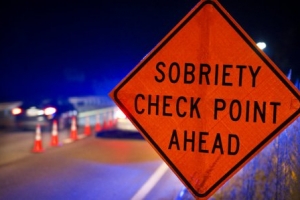Should the NH legislature ban sobriety checkpoints?

Since the early 1980s, sobriety checkpoints have been used as a tool by law enforcement officials to help take drunk drivers off the road.
The U.S. Supreme Court has ruled checkpoints to be constitutionally permissible. However, some state courts have deemed them illegal for violating state constitutions. NH does currently allow judicially approved sobriety checks, which are then advertised in the newspaper.
Those opposed to these sobriety checks say that in the instances where crimes other than drunk driving might be discovered, the checkpoints violate an individual’s Fourth amendment rights, which protect against an unreasonable search and seizure. They also point to the fact that the majority of drivers arrested are for crimes unrelated to driving while intoxicated. This low percentage of drunk driving arrests proves that the sobriety checkpoints don’t work.
Those in favor say the checkpoints help curb drunk driving, and in fact the low percentage of drunk driving arrests shows that the stops are working as a deterrent. Additionally, first offenders may be required to install an ignition lock device further decreasing the risk of repeat behavior. Lastly, being pulled over and asked if one is drunk does not constitute an illegal search.
The New Hampshire Legislature considered a bill to ban sobriety checkpoints in 2012, but the House killed the bill.
Should the NH legislature ban sobriety checkpoints? Leave a comment and have your say.











Comments
Login or register to post comments